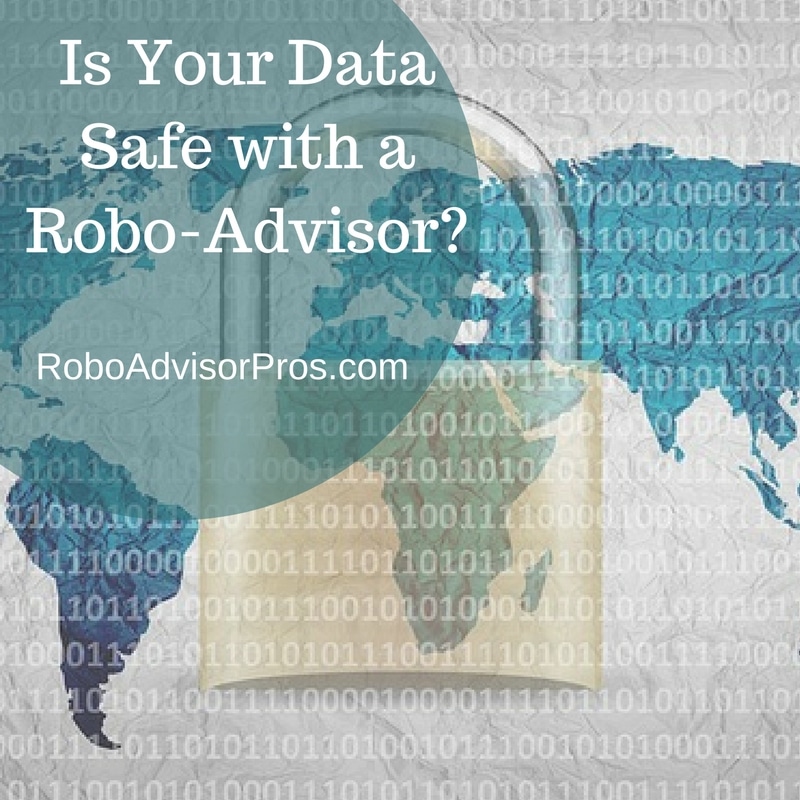Robo-advisor Tips; 5 Ways to Keep Your Money Safe
Do any of these scenarios sound like you?
• You want your money to grow in a reliable investment portfolio.
• You want the convenience of a robo-advisor but worry about whether your data is safe online.
• You have your investments with a robo-advisor and are reevaluating the whether your money is safe with a robo-advisor.
It seems that data breaches are increasingly common these days, although not much in the robo-advisor news. This can be scary for many reasons but is something extremely nerve-wracking for people considering robo-advisors. After all, investing with a robo-advisor means that your money will be handled completely electronically (in many cases).
Bonus; Robo-advisors with the Human Touch
The thing we all need to keep in mind is that our data is constantly circling around the internet in ways we may not even realize—and this likely has nothing to do with the robo-advisors that we use. Take your smartphone for instance: what permissions have you authorized for your apps? Do you know what these apps do with your data?

What smartphones and robo-advisors have in common is that careful consumers can easily find out what data is being collected, what data they are agreeing to share by virtue of signing up with the app or product in the first place, and what security measures protect this data. A little bit of research goes a long way in making educated choices about where to invest your money.
So, is my data safe with a robo-advisor?
The good news is that many robo-advisors are extremely well protected.
Your Money is Safe With a Robo-Advisor – Here’s Why
Most of our money is handled electronically these days. Even when you bring cash into a bank and make a deposit, the bank rarely keeps that money in the building. The money is translated into a series of numbers in your account, and the physical cash gets transported somewhere much safer. If you write a check to another person who then deposits that check directly into her account, the two banks communicate electronically—again, no physical money gets transferred between banks.
What does this have to do with robo-advisors? These examples illustrate a point: even physical banks work with networks, data, and technology.
Bonus; 5 Free Robo Advisors – The Best Way to Manage Your Money
Before you take all your money out of the bank and hide it under your mattress, hear me out. Banks have high levels of security encryption that keep your assets and data safe. That’s why you rarely hear about a bank being hacked.
The same thing goes for robo-advisors. Your data is safe with a robo-advisor because of the security measures these investment options take to protect you. Security is a primary concern for robo-aadvisors and most offer bank level encryption.
Also, many robo-advisors are owned by the larger banks and investment houses, which means that investors get the same levels of protection that in-person bankers enjoy.
Curious about which robo-advisors are owned by large financial institutions? Check out TD Ameritrade Robo-Advisor Review to start!
You should always look into the type of encryption and protection offered by the robo-advisor you choose to use. Many robo-advisors have detailed security pages that explain what methods they use to protect your data. If a site does not make this information transparent, that may be a robo-advisor disadvantage and a sign that you should look elsewhere.
But, is my money safe with a robo-advisor?
In keeping with their bank-level security and attention to your assets, robo-advisors can also come equipped with fraud-alert features. TD Ameritrade, for instance, will reimburse clients for money lost due to fraud or unauthorized transactions. Talk about protection!
Even though robo-advisors are designed to run autonomously, that does not mean that you should “set it and forget it” for too long. Taking occasional stock of your, well, stocks will make it obvious to you if anything is amiss.
It’s important to note that even if your money is secure, you might still lose money depending on the sort of investments you make, the ebbs and flows of the stock market, or other unpredictable features of investing. This comes with the territory, and is not unique to robo-investing.
Questions? Check out our newly updated Robo-Advisor FAQ
How can I make sure I’m doing my best to protect my data and my money?
Arguably, the most risk to your data comes from the use of your own technology! Ironic, right?
Criminals can more easily gain access to your smaller devices, such as an unattended laptop or cell phone, than they can get into a robo-advisor’s database. Malware can also spy on your computer use, and there are ways for hackers to gain access to your passwords and private information through viruses and other software.
With 5 simple steps, you can help reduce or even prevent these breaches of privacy and ensure that your data is safe with a robo-advisor:
1. Use a complex password. Don’t rely on your birthday, your name, or “password123.” (nobody really does this, right?) Use a mix of uppercase and lowercase letters, numbers, and symbols.
2. Change your password frequently. Ever wonder why your work computer makes you change your password every 6 months? It’s not just to be annoying—changing your password keeps things fresh.
Find out; Are Robo-Advisors a Scam?
3. Never use the same password for different sites. If one of your passwords is stolen, it’s very easy for people to suddenly access all areas of your life, from email to Facebook to your investments. A multitude of complex passwords can be hard to remember, but it is a lot easier than dealing with identity theft. You can also try one of the many password managers.
4. Use passwords on phones, laptops, or any device you use to access your investments. I am the only one who uses my laptop, but what if it is stolen from my car when I run into the grocery store after work? What if my cell phone falls out of my pocket in a bar and I don’t notice until someone has already taken it home? These are legitimate concerns you need to consider if you want to make sure your data stays safe with a robo-advisor –or safe in general!
Related: Is Personal Capital Safe to Use?
5. Review your accounts and credit report occasionally. Experts recommend checking your credit report quarterly. Not only do you want to avoid an unpleasant surprise when you go to make a large purchase but checking your accounts regularly can alert you to unauthorized accounts, transfers, or charges. These can be a mess to clear up, especially if you don’t catch them right away. Be aware of what happens in your accounts.
All-in-all, Your Data is safe With a Robo-advisor
We live in an increasingly digital world, where everything about us is searchable. The 5 steps toward better online security are steps you should be taking anyway, regardless as to whether you choose to invest with a robo-advisor or stick with traditional investing options.
By being aware of what data-protection features your robo-advisor offers, you can minimize the already small risk that your data will be stolen and your money accessed. Ultimately, robo-advisors provide the same data and access protection used by many brick-and-mortar and online banks, and are safe places to invest your hard-earned money.
Free Access; Robo-Advisor Comparison Chart
Related

